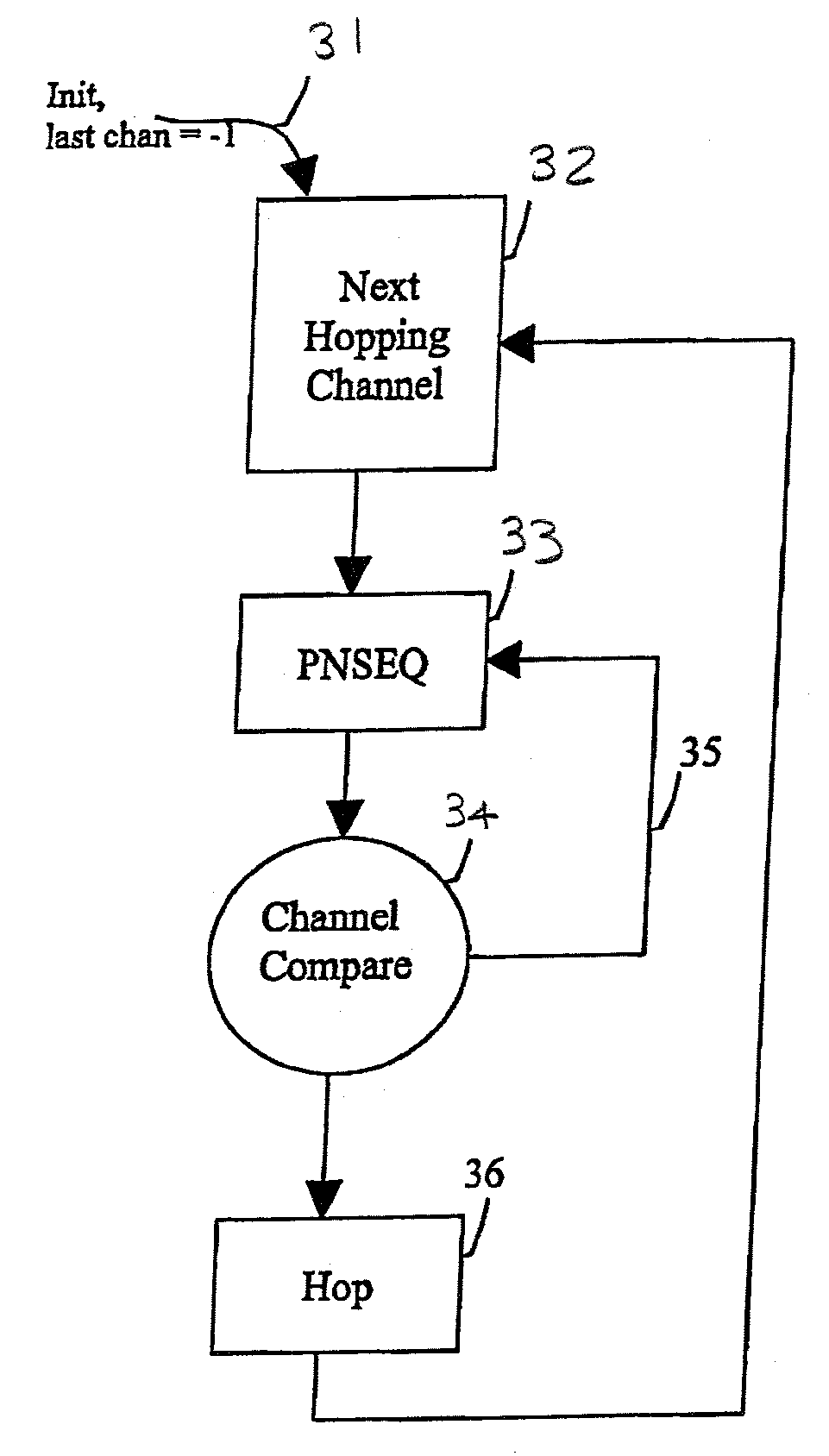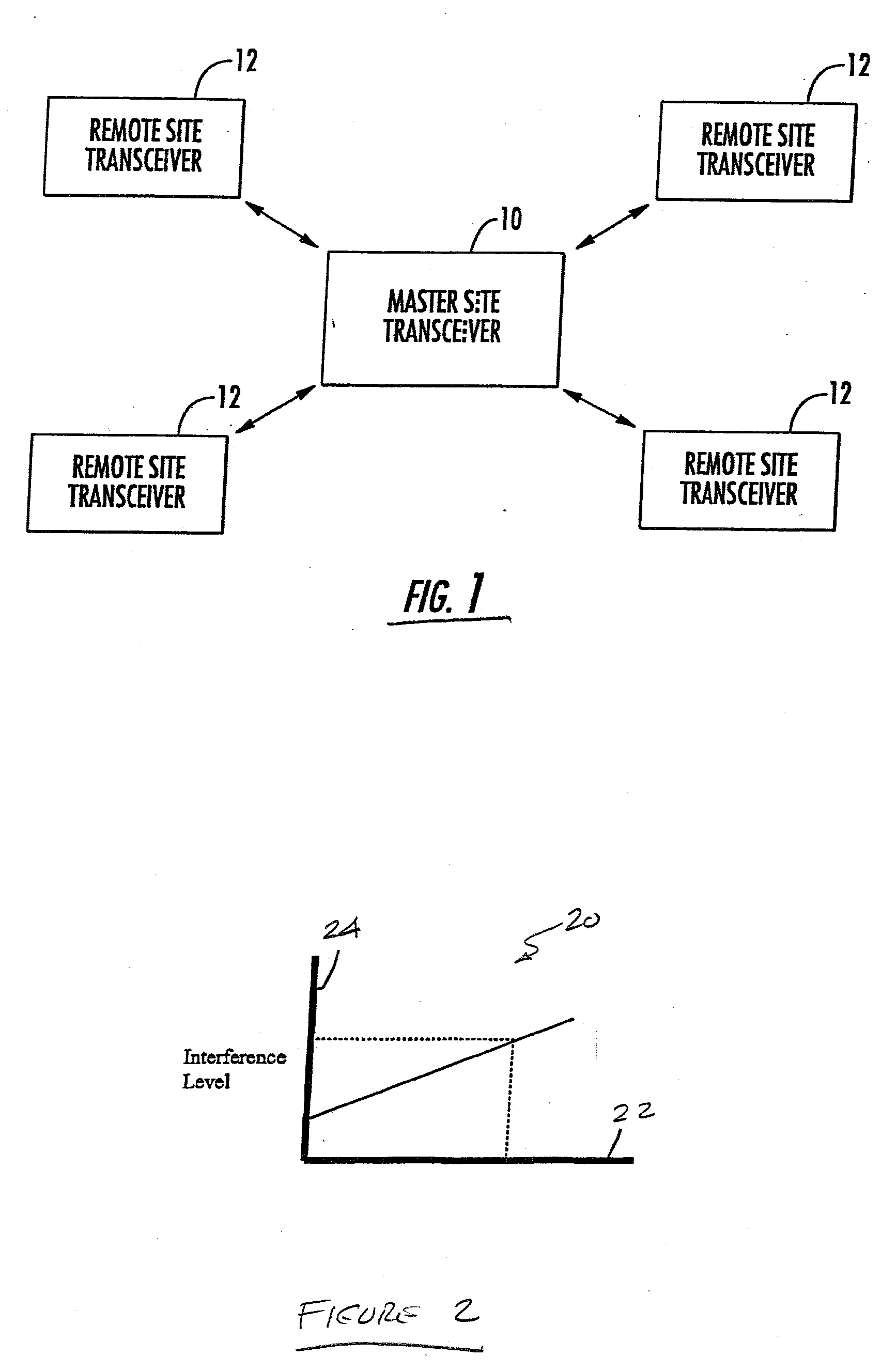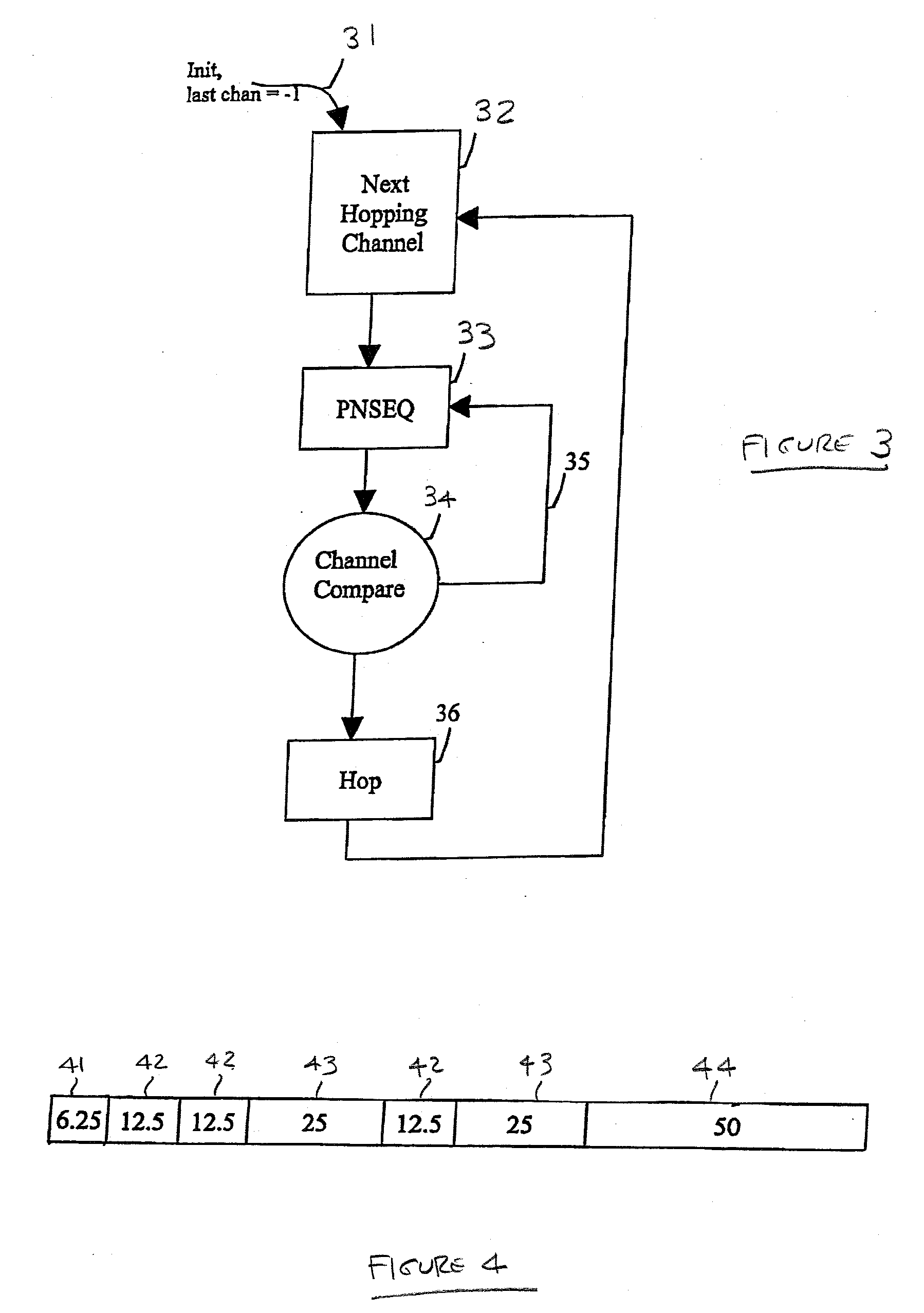Smart frequency-hopping control mechanism for mitigating against triggering silent radio squelch circuits by sub-channel transmissions from spectral reuse transceiver
- Summary
- Abstract
- Description
- Claims
- Application Information
AI Technical Summary
Benefits of technology
Problems solved by technology
Method used
Image
Examples
Embodiment Construction
[0024] Before describing the details of the ‘smart’ sub-channel hopping control mechanism of the present invention, it should be observed that the invention essentially involves an augmentation of the sub-channel hopping control mechanism executed by the communications control processor of the spectral reuse transceiver of the type disclosed in the above-referenced '753 application, that involves the execution of one or more prescribed discriminators or sub-channel selection filters, so as to effectively minimize the likelihood that the silent receiver of a primary user will see sufficient sub-channel energy that would otherwise cause its activation of its squelch circuit. As will be described, these filter functions are readily implemented by appropriately setting the configuration parameters used by the communications controller of the transceiver disclosed in the '753 application to control the operation of the transceiver. The architecture of the transceiver of the '753 applicat...
PUM
 Login to View More
Login to View More Abstract
Description
Claims
Application Information
 Login to View More
Login to View More - R&D
- Intellectual Property
- Life Sciences
- Materials
- Tech Scout
- Unparalleled Data Quality
- Higher Quality Content
- 60% Fewer Hallucinations
Browse by: Latest US Patents, China's latest patents, Technical Efficacy Thesaurus, Application Domain, Technology Topic, Popular Technical Reports.
© 2025 PatSnap. All rights reserved.Legal|Privacy policy|Modern Slavery Act Transparency Statement|Sitemap|About US| Contact US: help@patsnap.com



